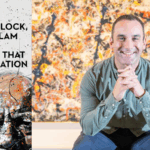Lent is a season observed as a time of reflection, repentance, and preparation leading to Easter. This year, Lent begins on March 5.
Traditionally lasting 40 days, it mirrors the period Jesus spent fasting in the wilderness. It invites you to examine your spiritual, emotional, and physical habits to align more closely with your faith or values. While the practices of Lent may vary, fasting, prayer, and acts of service are often central to its observance.
Choosing something to give up during Lent requires thought about what will challenge you while fostering growth. For some, this might mean abstaining from indulgences like sweets, your daily coffee, alcohol, or social media. These choices are straightforward and can reveal how often you turn to these things for comfort or distraction. If you decide to give up social media, for example, ask yourself if this habit has become a crutch or if refraining might create space for healthier relationship alternatives.
For others, Lent may present an opportunity to take a broader view of sacrifice. Is there a behavior or mindset you could shed to better reflect your values? Perhaps it’s giving up gossip or impatience. Reflect on how these choices could shift your interactions. If you choose to forgo impatience, consider moments when you rush through conversations or tasks. How could taking a more deliberate approach change those experiences?
Another approach is to add something meaningful rather than give something up. You might commit to daily acts of kindness, volunteering, or dedicating time to spiritual practices. If you decide to add prayer or meditation to your routine, think about how this can centre you. Would setting aside 10 minutes each morning for quiet reflection change how you face the day?
For families, Lent can be a shared journey. What if you and your loved ones choose something to give up or add together? It could be a commitment to eating meals without devices or spending one evening a week doing a meaningful activity together. Shared efforts can create accountability and deepen familial connections.
Perhaps a more holistic way of examining our everyday practices through Lent is that it helps us consider how our choices can extend beyond the 40 days of Lent. Is what you’re giving up tied to a long-term goal, such as reducing waste or being more present? If you choose to avoid single-use plastics, for example, the habits you form during Lent could become a lasting commitment to sustainability.
You might also explore the deeper reasons behind traditional Lenten practices. Fasting, for example, is not just about abstaining from food but about focusing less on physical desires and more on spiritual priorities. If fasting from meals isn’t practical for you, could you fast from spending money on non-essential items such as that daily coffee or consuming excessive media? How would such a fast affect your perspective?
As you choose your focus for Lent, it’s helpful to think about how these practices connect you to a larger community or purpose. How does what you give up or take on help you contribute to the lives of others? If your sacrifice frees up time, energy, or resources, how can you use those for good?
At its core, Lent invites you to grow in awareness. It’s not about perfection or strict rules but about making intentional changes.
What choices could help you better understand your priorities and their impact?
How might your Lenten practice help you approach Easter with renewed purpose?










